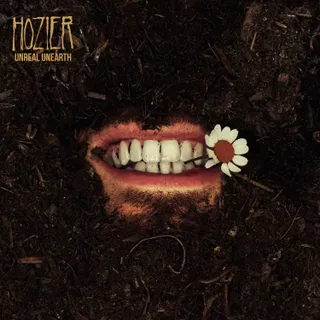Hozier - Unreal Unearth
by Aideen Gabbai
Hozier’s latest album, Unreal Unearth, ushers the listener on a journey into a vision of hell inspired by the literary classic “Dante’s Inferno”, infused with a deeply humanizing quality, breathing new life into the perspectives of the souls Dante meets trapped in the underworld. The album’s narrator journeys through this strange world over the course of an hour, and emerges out the other end with a transformed perspective on his life and world. The project is packed with a myriad of Biblical and Greek mythological references, enough to make any classics major foam at the mouth.
The opening track, “De Selby (Part 1)” starts off eerie and haunting, and it truly sounds like what a descent down under the crust of the Earth would feel like, the soil enveloping you as sunlight leaks away; “De Selby (Part 2)” plunges into a wild and percussive piece, and certainly the most experimental song on this album, with the two songs flowing perfectly into each other, though the difference in the sound of the songs should be more jarring than it is. Hozier’s voice is melodically conversational in “First Time”, giving the love song an intimate and personable aura.
One thing Hozier excels at is crafting breathtaking love songs from the most obscure of concepts. “Like Real People Do” on his self-titled debut explores a relationship between a bog body and the man who dug her up from the ground, and he continues the trend on this record. Francesca and Unknown/Nth reinterpret characters Dante meets along his journey, reframing them.
Francesca is about an adulterous woman, who inhabits the howling winds of the second circle of hell, and the song portrays her deep and genuine love for her lover in an otherwise tumultuous life, with equally sweeping orchestration.
In “Unknown/Nth”, Hozier uses Satan’s betrayal of God as a metaphor for an idealized romantic relationship that ends in faithlessness. Both songs stun with lyrics that startle and make you wonder if you’ve ever experienced the depth of human emotion that the artist has. In the emotional crux of “Unknown/Nth”, the singer’s voice intensifies, like it’s trying to break through the restraints of the speakers it’s being emitted from, as he sings out “Do you know I could break beneath the weight/ Of the goodness, love, I still carry for you?/ That I’d walk so far just to take/ the injury of finally knowin’ you?”
“Anything But” is a palate cleanser towards the end of the album where the tracklist is packed with darker and more intensely emotional songs; it swoops in with a bright guitar, clapping making the beat, and beautiful vocalizations between verses, evocative of the iconic ones in “Dreams” byThe Cranberries, which were themselves inspired by ancient Irish singing traditions. However, the perky sound disguises the snark of the lyrics, where Hozier tells a former lover he wants nothing to do with her, “If I was a stampede, you wouldn’t get a kick.”
However, the real jewel of this album is “Butchered Tongue”, a song I could only listen to twice because of how emotionally impactful it was to me. The song engages a sorrowful dialogue about Irish history, and the horrifying loss of the Irish language, Gaeilge, because of English colonialism. It employs gruesome imagery of a tongue flailing without its body, embodying names and places Hozier feels are foreign to him despite being in his home country. It shifts your perspective ot the other instances of Gaeilge lyrics on this album in “De Selby (Part 1)” and “To Someone From A Warm Climate (Uiscefhuarithe)” to realize that these weren’t just cool flavor text, but they were reclamations for Hozier, a way for him to grow closer to that past before colonization and massacre. As someone whose grandmother is a native Irish speaker who refused to pass down her language to her children for fear it would set them back in life, it hit me in a buried place.
“First Light” wraps up the thematically heavy album re-emerging from the Earth, with visions of the sun spreading across your face after a lifetime of darkness. The song takes the lessons of the album, the pain and darkness of the past, and embraces the future, a hope for the sun rising again and the world being bathed in its light.
This album truly digs its fingers into the dirt to pull out history, both Hozier’s personal and cultural past, to create an impactful concept album that reckons with how we in the present can look at the past through new lenses, and reclaim stories and transform them into something transcendent and new.
I, for one, would drink dry the River Lethe just to listen to this album again for the first time.

